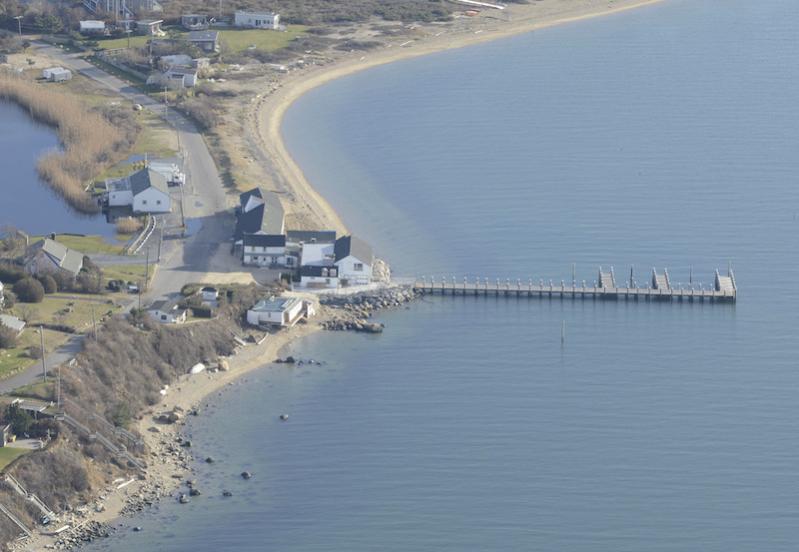The East Hampton Town Board backtracked on a settlement the town reached in January with Marc Rowan, the billionaire owner of Duryea’s Lobster Deck in Montauk, following an outcry from residents.
At the board’s work session in Montauk on Tuesday, the board voted unanimously to hire the Sokoloff & Stern law firm “to advise the town on all litigation involving Sunrise-Tuthill Properties,” corporations affiliated with Mr. Rowan, and appropriating up to $20,000 for its services.
The board had not voted on the settlement, signed in January by Michael Sendlenski, the town’s attorney, along with Mr. Rowan and an attorney representing him. It allowed Mr. Rowan to apply to the town planning board to legalize table service where it was technically disallowed. The town was to deliver a certificate of occupancy for structures on the property pertaining to the complex’s ice manufacturing, sale, and storage facility; fish processing, preparation, and cleaning; fish market; wholesale and retail seafood shop with ancillary areas; an accessory dining patio; a cottage and garage, and outdoor decks, as well as a house and attached garage that was once the Duryea family’s residence.
A pending building permit application for the reconstruction of an existing garage was to be issued, and Mr. Rowan was not to be prevented from applying for future alterations on the site. The town was also to honor state patents granted to the Duryeas long ago, acknowledging that it has no jurisdiction over a pier repaired after Superstorm Sandy in 2012.
The settlement followed three lawsuits filed by Mr. Rowan in March 2018.
David Buda, a Springs resident and frequent critic of town government who brought the settlement to public attention last month, continued his critique on Tuesday. “What I found was deeply disturbing,” he said of the stipulation of settlement, “both because the so-called benefits to be provided to the town were mostly window dressing and because the town gave away much more than it should have and in a manner that tied the hands of town officials and the planning board.”
David Gruber, a candidate for supervisor and another frequent critic of the board, made remarks similar to those in a letter that appears in today’s Star. The settlement, he said, “marks a new low for lawlessness by the East Hampton Town Board.”
He charged that the board, with the exception of Councilman Jeff Bragman, “were so intent on hiding from the public what appears to be a grossly inappropriate sweetheart deal for the property owner that they could not bear to vote on it in public as the law requires,” and credited Mr. Buda with bringing it to the public’s notice. His remarks drew loud applause from those in attendance, most of whom were Montauk residents.
Mr. Van Scoyoc defended the board’s actions. Mr. Gruber was correct that the board had not voted on a stipulation, nor authorized him to sign such a stipulation. “Therefore, we have not adopted that stipulation.” But he said that Mr. Gruber’s characterization of the board’s conduct was inaccurate. “Anytime the town engages in discussion of stipulation of settlement, it’s done in executive session,” just as contract negotiations and personnel matters are.
Mr. Bragman, whose criticism of the settlement at the board’s Feb. 21 meeting prompted a loud and sustained rebuttal from an infuriated Mr. Sendlenski, again defended his own conduct, but acknowledged that most of the town’s attorneys were unable to work on the settlement due to conflicts of interest. “I had misgivings about the settlement agreement,” Mr. Bragman said. “At this point, despite what led us to where we are . . . where we are on the settlement is a situation we don’t want to be in.” The town will be better served by independent legal advice, he said. “I’m a lot happier today than at the last meeting. I hope it’s a change that’s going to be better for Montauk as well.”

